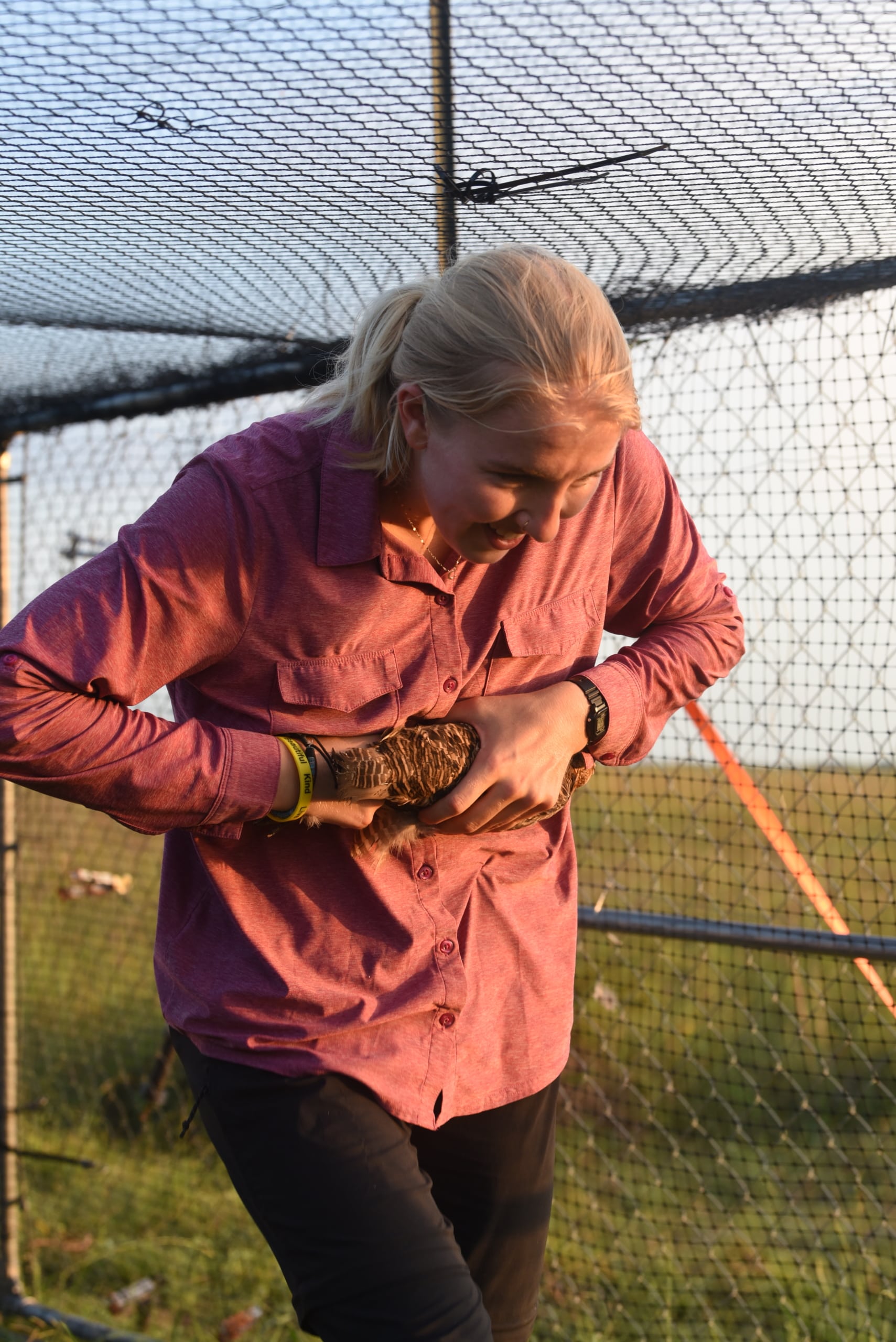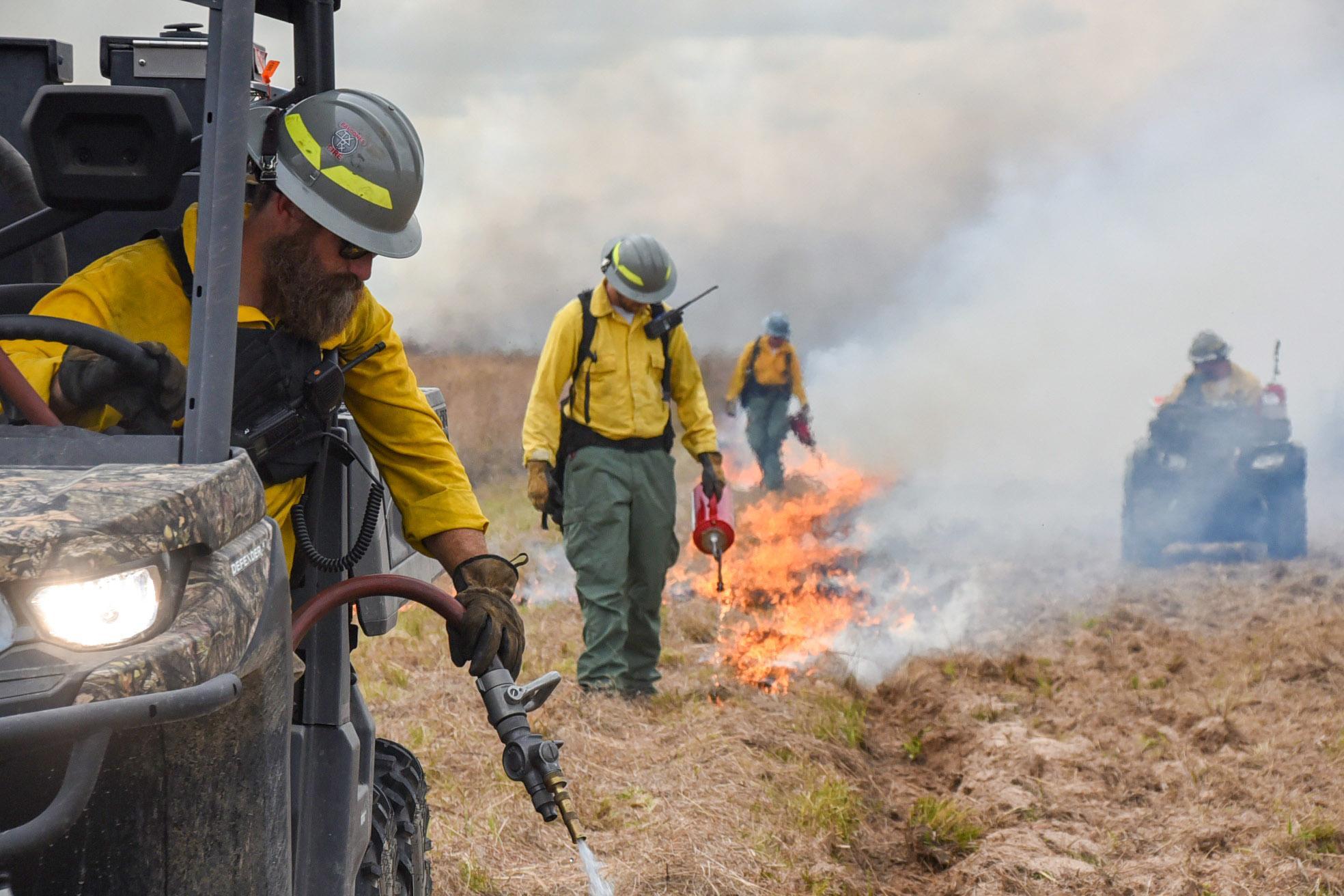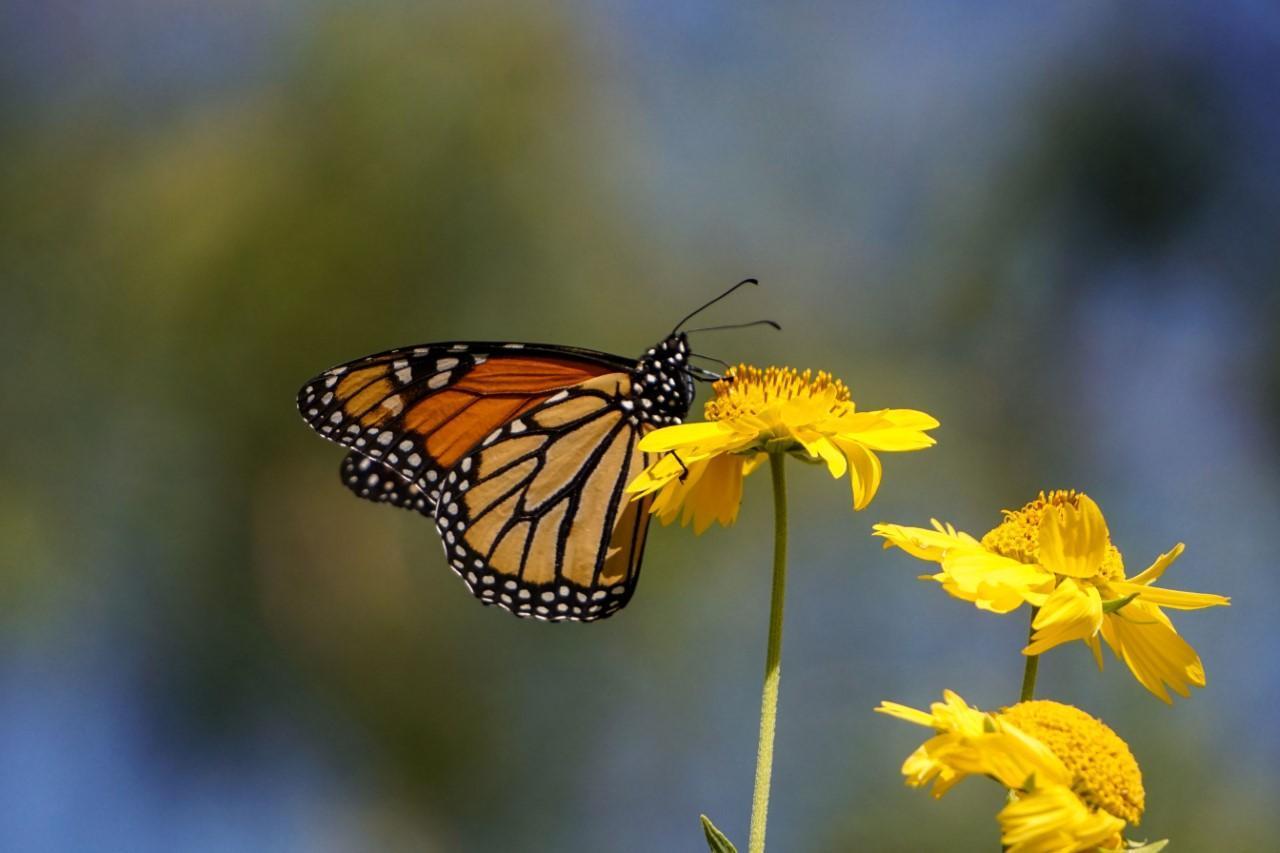In addition to crew-based programs, many Corps work with state and federal resource management agencies to offer internship and individual placement opportunities. These service positions give young adults leadership experience and the chance to more deeply explore career opportunities.
Over the years, several member organizations of The Corps Network have worked under our agreement with the U.S. Fish and Wildlife Service (USFWS) to recruit participants for the USFWS Directorate Fellowship Program. Once such member organization is the Intergovernmental Internship Cooperative (IIC), based out of Southern Utah University. IIC places the fellows and helps keep track of their progress throughout their term. Claire Hassler is serving through the USFWS Directorate Fellowship Program in partnership with IIC. We spoke with her about her service experience.
Where are you currently based?
I am based in Balcones Canyonlands National Wildlife Refuge, which is in Marble Falls, TX, and Attwater Prairie Chicken National Wildlife Refuge, which is in Eagle Lake. I’m employed through Southern Utah University and IIC. My internship started in April 2021 and goes through February 2022.
How did you first hear about the USFWS Southwest Intern Program?
I had never heard anything about it before. I had a mentor who suggested I look at The Corps Network’s website because I told her I wanted to be working outside and she suggested it. I was looking mainly at trail positions but saw this on the partner’s section. I stumbled upon it and decided to apply even though I didn’t know much about it at the time.
Can you tell us a bit about your background? What were you doing prior to the internship and what made you want to join?
I studied journalism in college, specifically multimedia journalism. I was working at the local paper doing primarily video and photography for them. But I always had an interest in science journalism and conservation and environmentalism, so I was hoping I could get more into that specifically. I spent a few months after graduating working as a staff photographer at a paper in Columbus, MS. When that internship ended, I was looking for the next thing and saw The Corps Network internship posting and immediately thought, “that’s exactly what I want to do” – so I applied.

Can you share more about where you’re currently serving and your responsibilities?
Every month I spend three weeks at Balcones and one week at Atwater, and I do similar things at both of them. Primarily, I go out on the refuges and I document with videos and photos. Sometimes that looks like photographing the nature and the scenery and other times it’s photographing staff in action or public events. That’s field time and I live for that. When I applied that’s what I was most excited to be doing, being outside. With every day in the field, there’s two days in the office. I go through all of that content and I edit it and make sure it’s organized so that at end of the internship I’ll be able to give them a big photo drive of edited and captioned photos.
I also write Facebook content for the Balcones and publish those, make sure they’re spread out, relevant and interpretive. I’ve also been putting together some videos. Some are quick Facebook style with subtitles to share work that’s going on at the refuge. The one I’ve been working on for a while is for the Balcones website and it’ll be a “Welcome to Balcones, this is who we are and what we do” for their homepage.
What are some of your favorite parts about this program? What are some of the challenges?
My favorite part of this experience and what I’ve gained from it is learning how to look more closely with a lens of curiosity, because everyone I talk to and everything I look at is so interesting. The people here are so knowledgeable and willing to share what they know. There are so many stories to tell that I know the public would be interested in if they heard about it. I’m excited to go on from here: wherever I end up, wherever I live, I’ll be able to learn about the natural space and share that with people through photo and video. Also, getting to be immersed in the nature and live on the refuge and be out in the field doing photography.
For challenges, it is a very creative, detail-oriented job, so it can be a lot to have to stay in that creative mindset for 30-40 hours a week. That’s been the greatest challenge: trying to be disciplined and channel that creativity on-demand. I’ve learned a lot about myself, so it’s been a positive experience.
What training and support are you provided through this program?
Not any formal training, but I took the Eppley Institute Interpretation course, which was really helpful and I’ve used it throughout. I pretty much had a solid background in video, photo, and writing. Any questions that I have about the refuge or biology or ecology there are plenty of people to answer my questions.
I meet with a mentor from the university and other interns in my cohort in other states virtually. Something that’s been huge has been having my mentor and my boss to guide me through the whole USA Jobs and applying for federal positions. It’s a whole different world and if I didn’t have help, I wouldn’t know what I’m doing at all. They review my resume and cover letters, told me about upcoming positions and what people are looking for. I don’t know where I’ll be after this internship yet, but I feel good about my applications because of all their help. The professional development aspect is really nice, as well.

What has been your favorite experience during the internship so far?
I got to go down in a cave as cavers were doing surveys of different species down there. The refuge biologist said I should go and take some videos. We got to climb down this skinny hole and get all muddy and see cave dwelling species with cool adaptations. It was unreal. I’ve never done anything like that before.
You mentioned wanting to continue in this type of work. What are your goals down the road?
I’ve loved working for the Fish and Wildlife Service. I think at both refuges the staff are amazing and I really believe in their mission. I would love to eventually become permanent, possibly as a visual information specialist or a park ranger in visitor services in USFWS or for the Park Service. I would love to continue this work and hopefully get to tie in as much photography and storytelling as I can. That’s my passion.
Why is it important for young people and your generation to be involved in this type of work?
The next generation is the future and eventually the entire workforce. I think it’s important for us to see how things are done and be able to ask questions and do that ourselves. I learn by observing others and modeling after the people who mentor me. This has been a great introduction to that and I have a good understanding of USFWS and what my role could be with them in the future. Every generation comes with a new way of thinking and doing things. Social media is the big thing now, but the next generation will also have a new set of skills and tools that comes naturally to them. It’s always important to bring the next generation and invite them to the table in a way that makes them feel valued and appreciated.

What would you say to others who are considering their next steps or a program like this? Do you have any advice?
Please do it and apply! I didn’t have any idea what I was applying for, but I knew that if you don’t apply, you’ll never know. So don’t be worried about your qualifications or previous experience because odds are you can learn on the job if you’re resourceful.
For a person who gets this type of internship, make a plan at the beginning of your internship and make a list of what projects you want to do because it’ll fly by.





































































